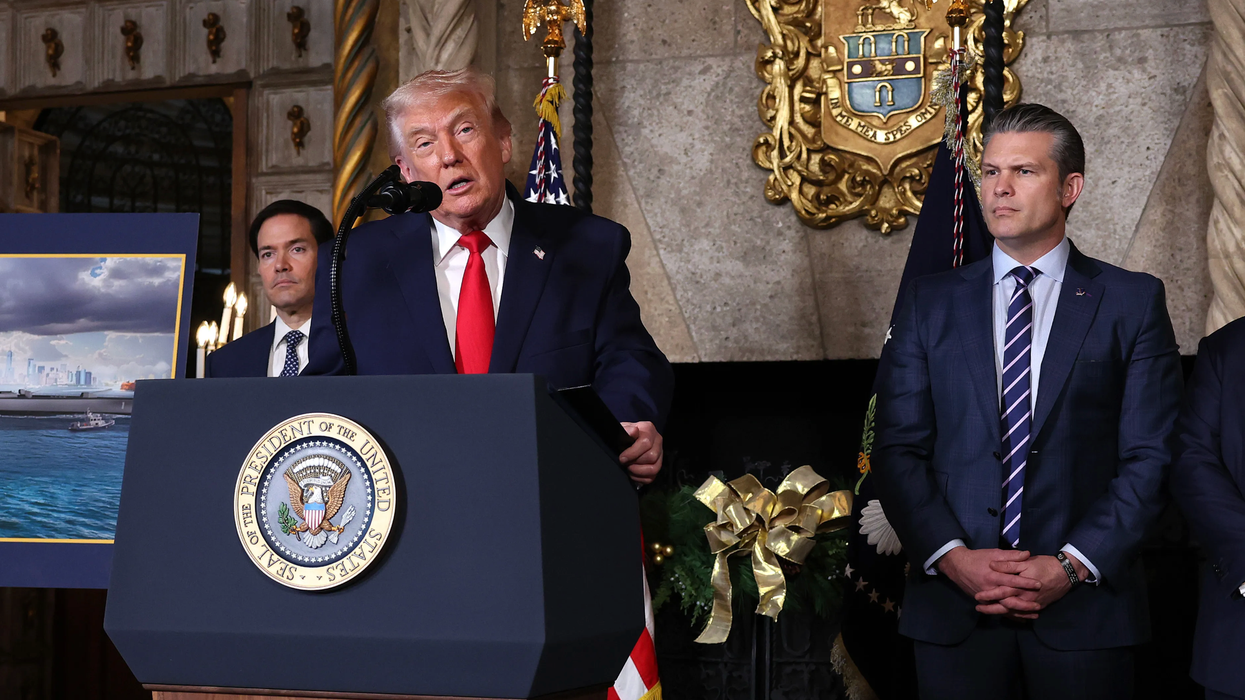This past spring and summer, The Fulcrum published a 30-part, nonpartisan series examining Project 2025—a sweeping policy blueprint for a potential second Trump administration. Our analysis explored the proposed reforms and their far-reaching implications across government. Now, as the 2025 administration begins to take shape, it’s time to move from speculation to reality.
In this follow-up, we turn our focus to one of the most consequential—and quietly unfolding—chapters of that blueprint: Funding cuts from NPR and PBS.
Last week, Congress approved a proposal from the Trump administration to eliminate $1.1 billion in funding previously allocated to NPR, PBS, and their affiliated member stations.
Following the vote, NPR CEO Katherine Maher denounced the cuts as an “irreversible loss,” describing them as “an unwarranted dismantling of beloved local civic institutions” and “an act of Congress that disregards the public will.”
Two Republican senators, Susan Collins and Lisa Murkowski, joined Democrats in opposing the measure. Nonetheless, the Senate version of the bill retains the cuts to public broadcasting.
Because the Senate revised the legislation, it must now return to the House for final approval. If the House adopts the Senate’s version, the bill will head to President Trump’s desk for signature. Under the 1974 Impoundment Control Act, which regulates congressional handling of presidential rescission requests, the deadline for passage is Friday, marking the end of a strict 45-day window.
Whether this legislation supersedes Trump’s Executive Order is a complex constitutional question. In practical terms, the bill reinforces rather than repeals the restrictions outlined in Trump’s May 1, 2025, directive, which instructed federal agencies and the Corporation for Public Broadcasting to halt all direct and indirect support to NPR and PBS. The order also mandated revisions to existing contracts and funding rules to block future aid.
In short:
- The executive order established the policy intent.
- The legislation enforces it financially.
Absent judicial intervention or new congressional appropriations, both the executive order and the bill are poised to jointly eliminate public broadcasting funds beginning October 1, 2025. While laws passed by Congress can be challenged, such cases typically proceed only after enactment—and courts generally defer to Congress, viewing its legislation as an expression of the will of an elected body.
Now past the 100-day mark of his administration, President Trump’s policy rollout shows strong alignment with Project 2025—a 900-page blueprint for governance. Despite repeated campaign trail assertions that he had “nothing to do with” the document and had not read it, the resemblance between his actions and Project 2025’s recommendations is striking.
Earlier this year, FCC Chairman Brendan Carr notified NPR and PBS leadership that the agency had opened an investigation into content aired across their 1,500 member stations, as reported by The New York Times.
These stations are licensed by the FCC as noncommercial educational broadcasters. They operate on reserved frequencies, are exempt from licensing fees, and are legally prohibited from airing commercial advertisements. In a letter dated April 2023 to the Corporation for Public Broadcasting, Carr warned that certain broadcasts may breach federal standards:
“I am concerned that NPR and PBS broadcasts could be violating federal law by airing commercials. In particular, NPR and PBS member stations may be broadcasting underwriting announcements that cross the line into prohibited commercial advertisements.”
Carr further questioned the necessity of continued federal support for NPR and PBS, citing shifts in the media landscape. PBS CEO Paula Kerger responded by noting that the cuts would “devastate PBS member stations,” particularly in smaller and rural communities.
Carr is the author of the FCC chapter in Project 2025’s policy blueprint. Another section calls on Congress to defund the Corporation for Public Broadcasting, which provides grants to NPR and PBS.
According to Project 2025, "stripping public funding would, of course, mean that NPR, PBS, Pacifica Radio, and the other leftist broadcasters would be shorn of the presumption that they act in the public interest and receive the privileges that often accompany so acting."
Consequently, the document argues these outlets should no longer qualify as noncommercial educational broadcast stations.
The Fulcrum published over 30 columns in the three months leading up to last November’s election, offering a cross-partisan analysis of Project 2025. Our editorial stance was clear:
“We believed this would serve as a guide for citizens and elected representatives to safeguard the healthy democratic republic we all desire.”
The possibilities we spoke of then are now becoming reality. The negative impact of Project 2025 on institutions that have served Americans for generations is no longer speculative. It is unfolding before our eyes.
David Nevins is co-publisher of The Fulcrum and co-founder and board chairman of the Bridge Alliance Education Fund.




















